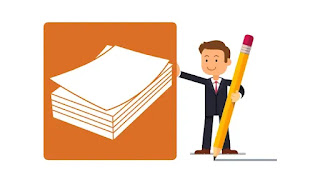Many writers like me will always claim we enjoy writing. I tell friends writing is my life and that I don’t think I can do any other thing except write. One might be forced to think I even write in my sleep. But is that really true? Sometimes, we get tired and wary of what we love, no matter how much we love it. Sometimes, I don’t even want to stare into another computer screen and I wish I don’t ever have to write again. So how do I beat this feeling?
Here are some tips that have worked:
- Clear your head: Sometimes, external pressures are the reason we do not enjoy our writing. There is absolutely no way a person who does not know where his next meal will come from will enjoy writing or doing anything he loves doing. This is something many upcoming writers face. So, what is the solution? There is no cut out way to keep your problems out of your head, but at least you can try. Create your island out of your limited resources by clearing your head because your writing is an extension of your mental state.
- Stick with what you love: Yes, sometimes we are forced to write on things that are outside our comfort zone. For instance, if I had my way, I will never write another article like this in my life, but I have to get paid. So, what can we do in this situation? Start by writing what you love most to get your creative juices flowing. Whenever I don’t feel like writing, I open a blank word sheet and start writing a short story. It works like a dead car battery that needs a little push to pick up again. Once the juices start flowing, I switch to what I have to write.
- Reward yourself: For someone like me, I get paid to write. That might be a reward, but that’s not enough reward for me (I know, I can be greedy.) So, what do I do? I set a reward for myself if I can deliver something superb. For instance, it is my lunchtime but I have told myself I would not have lunch till I am done with this article. Note that this is what works for me. For some people in order to get to the lunch quickly, they might just write something below par. By the way, don’t do this when you are writing something long like a novel, or you might just die before you finish. The point is, look for a just reward for yourself, something you are looking forward to when you are done. It can serve as motivation.
- Try Music: A friend of mine recently discovered Classical music puts her in the mood to punch vigorously on her keypads. I tried it and I felt like jumping off the bridge. So, you have to be careful with the genre of music as not everything works for anyone. But music improves cognition and enhances your memory. It digs deep into things stuck in your head and brings them out for you. So, know the genre that works for you and listen to a lot of it before you start any writing task.
- Take Time off: Not too much time, but sometimes no matter how much you apply the above points, it probably will not still work out for you. So, take time off to either try to solve your problems or get into a reflective mindset.
Finally, we must recognize that we do better whenever we enjoy what we do. So, make it a point of duty to have some fun writing.


